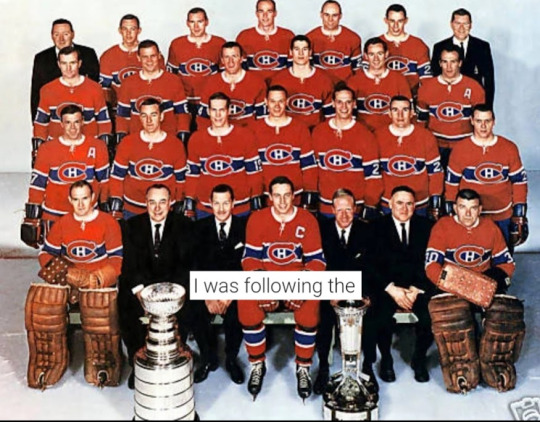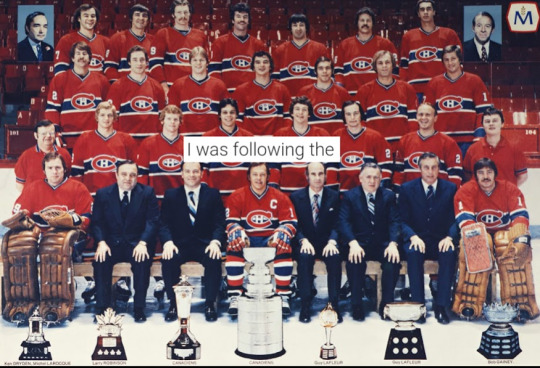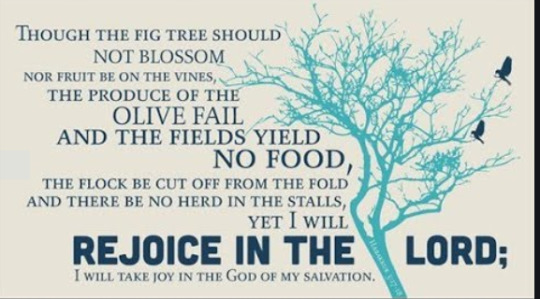#thinking about how the current habs have to carry the weight of the past habs and the habs before them and the habs before them...
Explore tagged Tumblr posts
Text












the modern montreal: a legacy of 125 years of hockey excellence le montréal moderne: un héritage de 125 ans d'excellence au hockey
#thinking about how the current habs have to carry the weight of the past habs and the habs before them and the habs before them...#legends come and go but the CH is forever#a team that has outlasted two leagues#a team that has won more than everyone else#a legacy that resides on the shoulders of a 24 year old a 22 year old and a 19 year old#constantly thinking about les habitants#habs as white winter hymnal by the fleet foxes because thats the vibe#montreal canadiens#habs#habs posting#web weaving#k.webweaves#nick suzuki#cole caufield#pk subban#carey price#art#nhl#hockey
132 notes
·
View notes
Text
Habakkuk: Wrestling with God

Among the shortest, least read and even less spoke of books of the old Testament is a book called Habakkuk. Nestled in between the book of Nahum and Zephaniah, two more old testament books I am sure no one has heard of, lies Habakkuk. Despite its unknown nature, Habakkuk confronts one of the universal questions of humanity: If God is a loving God, why does God allow bad things to happen?
As Christians, we are aware of the nature of God. He is Jehovah-Jireh, our provider; Jehovah Nisei, victory; Jehovah Shalom, The price of peace. He is our savior, healer, provider, defender, the prince of peace and lord of lords—the God who sees us. However, there are times in our life where his healing power and peace seem to be absent. We know the nature of God to be true and eternally unchanging, yet in our times of desperation it becomes difficult to reconcile our belief in who God is and what we perceive in our present situation.
It is in times like this that questions arise. If God is a healer, why is there death and disease? If he is a savior and way maker, why do the pews remain empty? Chain breaker, yet many of us still are weighed down by addictions we can't break and a past we can’t escape. We are left without an answer, so we blame ourselves. It must be our fault—we lack the faith and prayer necessary to make God move. Many times, this may be true, God does desire for us to call out to him and draw closer before moving; however, sometimes God simply does not move in the way we desire because it is not the right timing (or not his will). His divine, for whatever reason we cannot comprehend, includes pain and suffering.
The story of Habakkuk is one of a broken man, carrying the weight of not only his fate but the fate of a nation. Habakkuk was a prophet, and much like all the other old testament prophets he had one job: Listen to God complain about Israel’s sin and how he’d punish them if they didn’t shape up (spoiler alert: they didn’t shape up).
When Habakkuk was told by God that the Chaldeans—A people who were more unholy than the idolatrous Israel—were going to ravage the city and leave it in ruin, he was left in agony. How could a holy just God, allow this evil to prevail? Hadn’t God promised this land to Israel? How could war and desolation be God’s will for Israel’s life?
Often, I find myself asking similar questions. Where is God in the midst of the chaos of life? Why have the friends and family I’ve prayed for for years not turned to God? The Lord promised revival, but where are the 600 souls that are meant to fill the empty alter space? Why does my mother still have cancer when we were told that she was going to be cancer free? Why does her best friend—a steadfast Godly woman who remained in church despite adversity—have stage 4 cancer, and how is this going to bring the family to God? Why am I more lost than ever before? Why didn’t it work out, did I mess up—am I forgiven? Does God hear me? How long, oh lord will you stay silent while my life is crumbling before me? Why when I am trying to do my best for you, am I plagued with fear, faced with temptation and dragged down by past failures I can’t escape.
The way in which Habakkuk approached his questions has given me direction in moments of uncertainty. The prophet initiated his conversation based on his distress about God’s “inaction” in the world. He wanted to see God do something more, particularly in the area of justice for evildoers. The book of Habakkuk pictures a frustrated prophet, much like Jonah. Both men wanted God to punish sin and demonstrate divine justice. When they did not see evidence of God’s justice, they took their complains to God. However, when God did not grant them the answers they desired, Habakkuk channeled his frustration into prayers and eventually praise to God, rather than trying to run from the Lord as Jonah did.
(Regression: So often, when we have an issue with God, we go everywhere except to him. I know that I’ll find myself talking to myself and friends about how lost I am and cannot hear God, and completely leave my complaints out of the few prayers In the midst of the uncertainty of life, we have to trust that God is working for our good. Even when we don’t see it, he is working.)
When doubt and confusion arose, Habakkuk cried out unto the lord. He turned to God, not his own understanding and waited for God to speak back to him. Habakkuk addressed his concerns on Gods use of the Babylonian empire to execute judgement on Israel. He openly questions the wisdom of God, and God withhold the answer to his question. Rather than answering his question, God gave Habakkuk a promise of a savior.
The lord told Habakkuk to write the vision down and make it clear for all to see, for the vison was for an appointed time. God did not disregard the chaos that was to come to Israel, nor did he calm the storm raging at that present time. What he did do was provide Habakkuk with a vision for the people of God in order to provide encouragement for the future. The revelation, the vision that Habakkuk received from God, was that the Messiah, Jesus Christ would come and solve the problems Habakkuk worried about—bring salvation, justice and mercy to the world.
Habakkuk’s prayer was not answered in his lifetime. He watched Israel fall into desolation at the hand of the Chaldeans/Babylonians. Israel was not released from their captivity for over 70 years. Yet, the last verses he penned were not those of great sorrow, but of joy—not in his circumstances, but in his Lord. While he was unable to find joy in his circumstances and the storms ahead, he rejoiced in the unchanging nature of God.
He wrote, “Although the fig tree shall not blossom, neither shall fruit be in the vines...Yet I will rejoice in the Lord, I will joy in the lord of my salvation. The lord God is my strength...and he will make me to walk upon my high places” Hab. 3:17-19.
When plagued by doubts and uncertainty, we must turn to God and remind ourselves of the things we know to be true through continual prayer and clinging to biblical truths. While it may be difficult to do, we must bring our questions to God and wait on him. As my youth pastor always says, God never intended for our questions to push us away. God intends to use our questions to grow our faith from one of perplexity and doubt to the height of our faith where we have absolute trust in God, regardless of any answers we may receive (or not receive). A deeper understanding of God is gained through intimacy with him.
Sometimes what we pray for, and what God desires to happen in our lives don’t coincide. We pray for peace and he sends a storm; revelation and then suddenly we can’t hear anything at all; direction and we get lost. Yet even when all outward evidence points to the contrary, the church is called to trust in the Lord. This trust is based not on what we see, but on who God is. Gods character is revealed through Jesus Christ, in whom divine wrath and divine mercy met when he died on the cross as our savior. God calls all people to put their trust in him, for “the just shall live by faith” (Hab. 2:4).
What we think we need and what we truly need are often different in heavens eyes. If God is not revealing a certain side of himself in your life, it does not mean that part of him is absent, it just means that he wishes to reveal a different and deeper side of himself in that season. His way is higher than our ways…
Even if God is not healing, he is still the healer.
When family isn’t saved, he is still the savior.
When the bills aren’t paid, he is still a provider.
When you are troubled, he is the prince of peace.
When your life is falling apart, he still has the whole world in his hands.
Just because you cannot see him working in the way you desire, does not mean that he is not there. He is still God of all, no matter what.
The visions God gives you can help you survive the darkest parts of your life. Habakkuk was given a promise of redemption, but also of destruction. While the vision may be one of promise and pain, as it was in Habakkuk’s case, they are meant to sustain you. As you are in pursuit of the promises of God, you can look to the vision while running and receive strength. While everyone’s visions may be different, we all can take the words of Habakkuk and know that the vision is for an appointed time. The visions that God gives you are not false because they have not happened, they are for an appointed season in your life.
While the fruits of your labor may not be evident in this season—all the leaves withered without the slightest sight of rain—you must cling to the promise. Your season will change. The promise is not dead, the vision is not a lie, It is just for a different time. God has things working behind the scenes.
The vision is not a lie, it is just for a different time.
It goes without saying that God does not take pleasure in out pain. However, pain is a necessary, while unpleasant, part of life. Pain is a catalyst in life triggers a level of dependence and faith in God not achieved otherwise. Pain allows individuals to grow and develop at exponential rates and see visions, receive revelations and acquire wisdom in ways they would not have been able to do otherwise. As frustrating as it is to hear when you are in a storm, God does have a purpose for the pain—even if we will never know what it is.
The name Habakkuk means to wrestle and embrace. Despite the book being only three chapters long, we see Habakkuk go through three separate seasons in his life. In the first chapter we see him wresting with his question and bringing his concerns to God, then in the second chapter he stands and waits on the lord to give him understanding. Once he gives the matter to God, God gives him a vision that helps sustain him though the storm. Finally in the third chapter, Habakkuk embraces God’s word and has faith in the future, despite his current circumstances.
You see, at different times in our life we will wrestle with tough questions but eventually have to embrace God and trust in him despite the questions we still have. Sometimes, we don’t not get the closure and answers we desire. The family member dies, the relationship ends, the job doesn’t work out. The prayer goes unanswered. That is when the peace of God comes in in. We may never understand, but we must believe that he is still in control. We may never understand, but must trust that God is still God. Even when life has its toll on us, it does not change who God is. No matter what, he is still worthy of all the glory, all the honor and all the praise.
0 notes